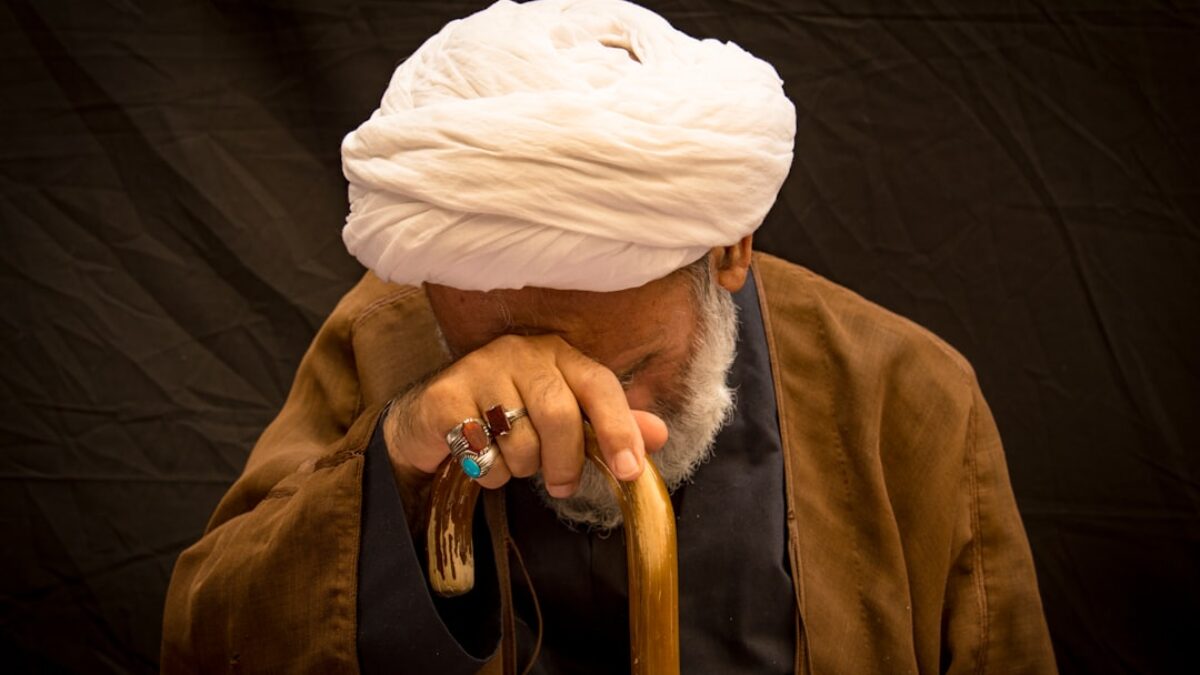In the journey of life, every soul confronts moments when the road steepens, the heart grows weary, and the horizon disappears behind clouds of uncertainty. Islam, in its luminous wisdom, arms the believer with a luminous weapon against despair: duʿāʾ, the intimate conversation between the slave and the Most Merciful. Among the most transformative petitions are those that nurture ṣabr (patient perseverance) and steadfast resolve. These powerful duas for patience and perseverance do more than request relief; they re-configure the believer’s inner architecture, replacing fragility with fortified faith. This article explores their linguistic beauty, spiritual mechanisms, and day-to-day relevance, equipping you to weave them into the fabric of your own trials and triumphs.
Understanding the Spiritual Landscape of Ṣabr and Duʿāʾ
The Qur’anic Foundation of Patience
Allah subḥānahu wa taʿālā mentions ṣabr in over ninety places, weaving it into the narrative of every prophet. From Nūḥ’s centuries-long preaching to Ayyūb’s unyielding gratitude while bedridden, the Qur’an presents patience not as passive resignation but as dynamic resilience anchored in trusting Allah’s perfect decree. Sūrah al-Baqarah 2:45 frames it bluntly: “Seek help through patience and prayer; indeed it is difficult except for the humbly submissive.” Here, ṣabr and ṣalāh are inseparable twins; duʿāʾ is their shared breath.
Duʿāʾ as the Language of Dependence
Unlike ordinary speech, duʿāʾ is an existential confession that the servant owns no independent power. The Prophet ﷺ said, “Duʿāʾ is the essence of worship.” (Tirmidhī) When we beg for patience, we acknowledge that steadfastness is a gift descending from the Treasures of al-Ṣabūr (The Patient One), not a commodity we can self-manufacture.
Key Components of Powerful Duas for Patience and Perseverance
1. Qur’anic Duas Embodying Patience
- “Rabbanā afrigh ʿalaynā ṣabran wa thabbit aqdamanā”
“Our Lord, pour upon us patience and plant our feet firmly.” (2:250) - “Wa ṣbir ʿalā mā yaqūlūna wa aḥjurhuj hijrā jamīlā”
“And endure patiently what they say and avoid them with gracious avoidance.” (73:10) - “Wa yā qawmi ighfir lī wa li-man dakhala baytiya mina l-mu’minī”
“And my Lord, forgive me and whoever enters my house as a believer.” (71:28) – demonstrating Nūḥ’s patience coupled with compassionate concern.
2. Prophetic Supplications for Steadfastness
The Prophet ﷺ taught concise yet ocean-deep formulas:
“Allāhumma lā ṣahla illā mā jaʿaltahu ṣahlā” “O Allah, nothing is easy except what You make easy.” Recite when faced with uphill tasks. “Yā Ḥayyu yā Qayyūm, bi-raḥmatika astaghīth” “O Living, O Sustaining, by Your mercy I seek relief.” A lifeline during chronic ailments. “Allāhumma ʿinnī aʿūdhu bika min-l-ḥammi wa-l-ḥazan…”
A comprehensive dua covering grief, debt, and oppression—each a test of endurance.
3. The Etiquette of Asking for Ṣabr
| Etiquette | Practical Tip |
|---|---|
| Start with Praise | Open with ṣalawāt and gratitude to set a tone of humility. |
| Choose Blessed Times | Last third of night, between adhāand iqāmah, while fasting. |
| Consistency | Make the dua habitual, not crisis-only, to pre-empt weakness. |
| Presence of Heart | Pause distractions; visualize your plea entering the heavens. |
Benefits and Importance of Consistently Seeking Patience through Duʿāʾ
1. Neurological Re-wiring
Modern psychology echoes the Qur’an: repetitive positive affirmations reshape neural pathways. When we recite “Hasbunā Allāh wa niʿma l-wakīl” during calamity, the limbic system calms, reducing cortisol levels. Over time, this spiritual cognitive behavioral therapy lowers impulsive reactions and enhances delayed-gratification skills.
2. Spiritual Elevation and Rank
Allah elevates degrees for those who combine patience with duʿāʾ. The Prophet ﷺ said, “Whenever a Muslim is afflicted by hardship… Allah says, ‘I have gained My slave’s praise and resignation; for him is Paradise.’” (Bukhārī) The dua itself becomes a badge of honor in the unseen realm.
3. Community Resilience
Families and masjid circles that collectively invoke patience create micro-ecosystems of endurance. A mother who recites “Innā lillāhi wa innā ilayhi rājiʿū” aloud after a miscarriage not only steadies herself but also teaches toddlers emotional literacy through the Qur’an.
Practical Applications: A Day in the Life of a Duʿāʾ-Centered Mindset
Morning Routine
As dawn breaks, whisper:
“Allāhumma mā aṣbaḥa bi-min niʿmah…”
…thanking for eyesight, then adding, “Wa ʿāfiniyatil badan”—a plea for bodily patience to fast, work, or care for toddlers on little sleep.
Midday Work Stress
Between spreadsheet crashes and an irate manager, step into the stairwell, face the Qiblah, and breathe “Rabbi yassir wa lā tuʿassir” three times. Visualize the tension dissolving into Allah’s vast mercy.
Evening Family Challenges
When a teenager slams the door, resist retort. Instead, raise your palms unseen and pray: “Allāhumma aṣliḥ lī dhurriyyatī, innī tubtu ilayka”. The silent dua shifts the atmosphere more than a lecture could.
Case Study: A Nurse’s Ramadan
During COVID-19, ICU nurse Sara worked 14-hour shifts. Each time fatigue peaked, she recited “Wa ʿālayka tawakaltu wa anta khayru l-wārithī” while sanitizing her hands. Colleagues noticed her composure and asked for her “secret.” Sharing the dua led one agnostic co-worker to download a Qur’an app—proof that personal ṣabr can become public daʿwah.
Creating a Personalized Duʿāʾ Plan for Life’s Specific Tests
- Inventory Your Triggers – List five recurring stressors (health, finances, relationships, time management, spiritual laziness).
- Match Each with a Dua – Use the tables below:
| Trigger | Recommended Dua | Reference |
|---|---|---|
| Financial Debt | “Allāhumma akfini bi-ḥalālika ʿan ḥarāmika…” | Tirmidhī 3563 |
| Chronic Illness | “As’alullāha l-ʿaẓīma rabba l-ʿarshi l-ʿaẓīm…” | Ṣaḥīḥ Bukhārī 6346 |
| Parenting Anxiety | “Rabbi hab lī mina l-ṣāliḥī” | Qur’an 37:100 |
| Fear of Failure | “Hasbunā Allāh wa niʿma l-wakīl” | 3:173 |
- Set Reminder Triggers – Use phone alarms titled “Ṣabr Break” synced with adhātimes.
- Weekly Reflection – Journal one ayah and one hadith on ṣabr every Friday night.
Frequently Asked Questions
What is the best time to recite duas for patience?
While every moment is a door to Allah, the last third of the night (tahajjud) and between adhāand iqāmah are described in hadith as times when duʿāʾ is rarely rejected. If those are missed, recite immediately upon feeling the sting of hardship—“the dua of the distressed is answered even if he is a sinner” (Tirmidhī).
How can I avoid mechanical repetition without presence of heart?
Follow the “3-3-3” method: read the Arabic once slowly, then the translation once, then close your eyes and picture the meaning for three breaths. This triple cycle anchors the tongue, mind, and heart in unison.
Is there a specific number of times I should repeat a dua?
The Prophet ﷺ often repeated a plea three times. However, intensity of need outweighs arithmetic. The Companion Zaynab bint Jahsh once prayed an entire night with one verse on her tongue until dawn—yet her plea was answered because it was true and desperate.
Can I make dua in my native language if I can’t pronounce Arabic perfectly?
Absolutely. Arabic is preferred for prophetic duas, but Allah understands all tongues. Sheikh al-Islām Ibn Taymiyyah stated that duʿāʾ in a non-Arabic language is permissible and answered, especially when articulating personal pain that may lack classical phrasing.
How do I know if my dua for patience has been answered?
Look for three signs:
- Emotional regulation: the same trigger now bothers you less.
- Unexpected openings: solutions appear in ways you did not plan.
- Increased gratitude: you find yourself saying “al-ḥamdu li-llāh” for the very test.
These indicate Allah has planted inner ṣabr</
























Post Comment